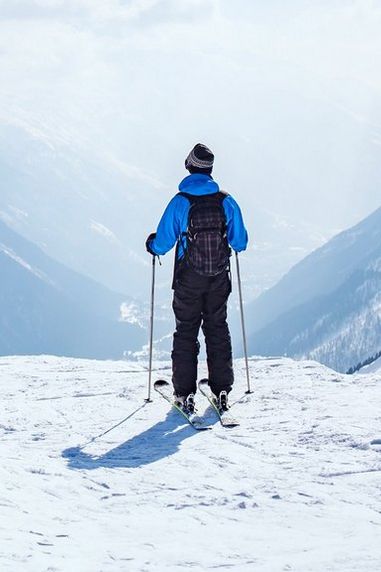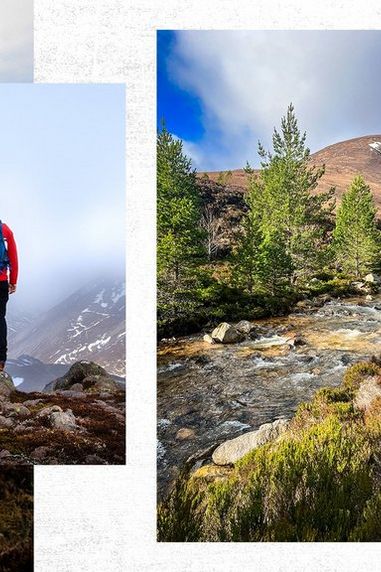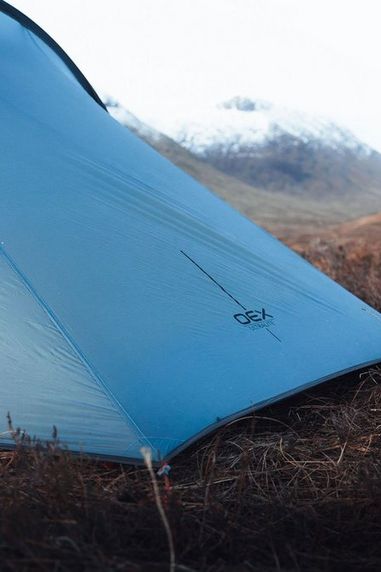“You will have to give up your life of mountaineering as it is unlikely that you will ever climb again.” That was the devastating news which greeted Tony Ward, an acclaimed mountaineer at the age of just 33. He faced the need to come to terms with a major illness (a form of kidney disease known as IgA nethropathy); plus, the fact that he would be losing his job and lifestyle.
But one successful transplant on and immeasurable support from his family, Tony is on a mission to inspire others to get outdoors, show that defying the odds is possible, and to raise the profile of kidney research and awareness through incredible personal challenges. He holds the record for carrying out the world’s highest dialysis exchange which he did on Mount Toubkal in Morocco.
The 10th March 2022 marks World Kidney Day. We caught up with Tony to share his powerful story and to raise the awareness of the importance of our kidneys to our overall health.
1) Mountaineering has played a huge part in your Life Outdoors. What draws you to the mountains and the great outdoors?
Ever since I was a child, I have always wanted to be outside climbing things: trees, lamp posts, anything. I was never particularly good at school, the only lessons I really enjoyed involved being outside; but I was good at climbing things. Climbing gave me a sense of achievement and freedom at a time when school was telling me I would never achieve anything. Mountaineering became my job and a lifestyle that I continue to love.
"The mountains kept me sane and gave me my life back."
I was lucky enough to know Paul Braithwaite and Geoff Smith when I was a teenager, who introduced me to rock climbing and then mountaineering. The hills have always been the place where I can switch off and be myself. When I was first diagnosed with renal failure, I was devastated to be told that I would not climb again, it was almost worse than being told I was ill. Focusing on getting back out, being able to walk the dog and get back to some of my favourite places gave me the determination to prove the Doctors wrong.
It was a painful journey, at times every step left me exhausted. Surgical complications had left me with a damaged lung, nerve damage and I was severely anaemic. When I climbed Mont Blanc my Haemoglobin levels were just above the level at which they would have admitted me to hospital had I been in the UK.
I often wonder why I did it, but it gave me my sense of being me back, I wasn’t just Tony the Kidney patient, I was and still am a mountaineer. The mountains kept me sane and gave me my life back.
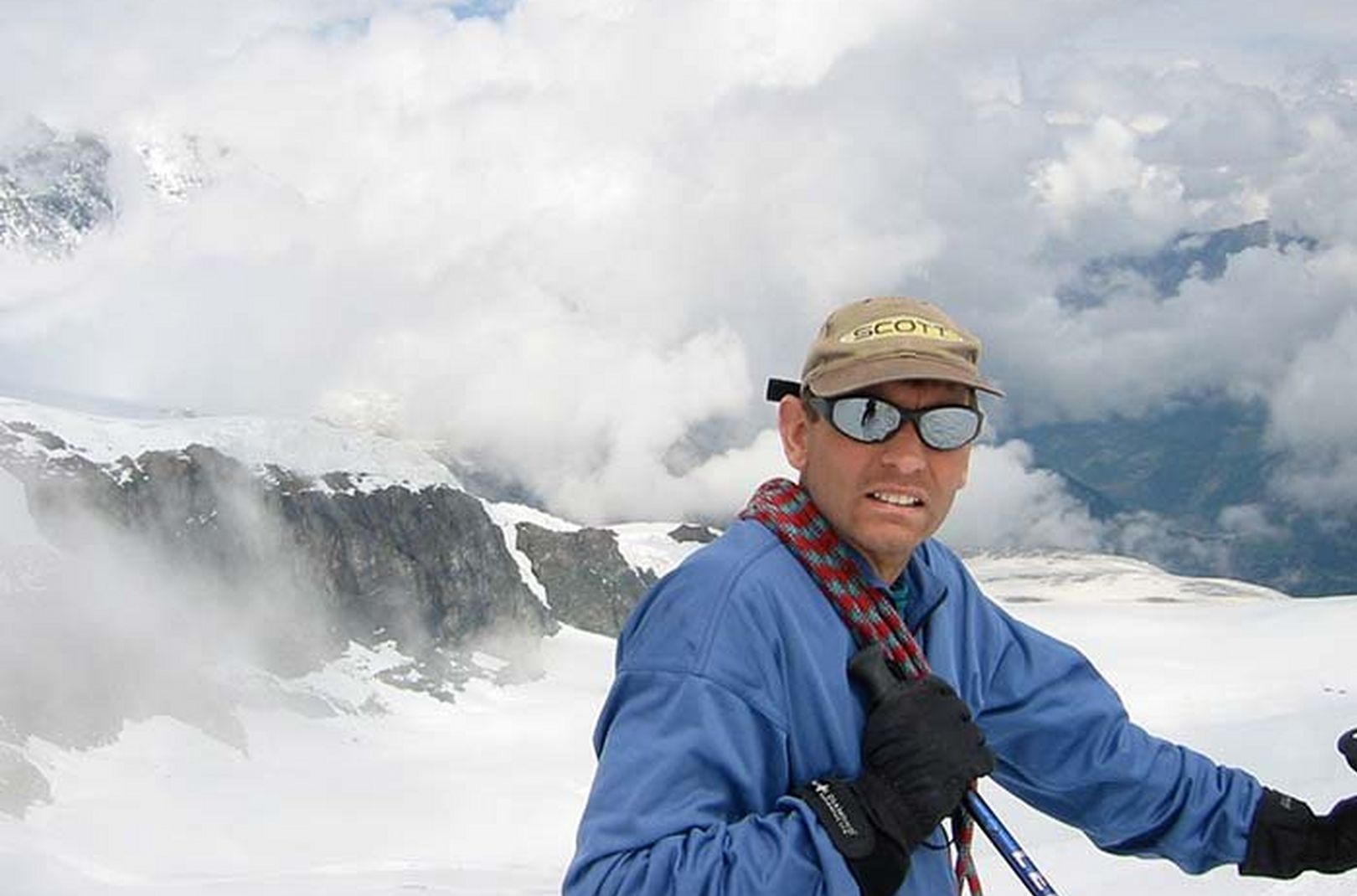
2) What advice would you give to someone looking to venture into the mountains or level up their adventure?
The most important this is to know your capabilities and manage the risk. Mountains can be very unforgiving. Understand the weather forecast for the area you are visiting and makes sure you have the correct clothing, jackets, footwear and equipment for the conditions and your objective. If something does not feel right, remember there is no shame in backing off. It will be there for another day.
3) So at the peak of your performance at the age of 33, you received a devastating diagnosis. Talk us through what happened and how it impacted your life?
I remember the words as the Dr told me about my diagnosis. I had been having headaches, and thought it was something minor. “Mr Ward we have your test results back and they show that you have a form of kidney disease known as IgA nethropathy”. I stopped listening as my consultant continued to explain the implications of this illness. Until he jolted me back to reality, “of course you will have to give up your life of mountaineering as it is unlikely that you will ever climb again.” The devastation was now total. Not only did I need to come to terms with a major illness, I would also be losing my job and a lifestyle which I loved.
He then showed me a picture of someone on a rock face climbing and doing a dialysis exchange. My thought was well if he can do that I can carry on climbing. I have always been very stubborn so that’s what I did. Luckily my wife was supportive and realised that I needed to do this and was happy to help by carrying extra weight in her rucksack. Initially I got back out in the Lakes where we live, dog walks up Coniston and Helvelyn. From there we went back to Scotland and completed a traverse of the Cullin Ridge, and from there the Alps and North Africa.
The logistics were hard and sometimes complex, as we needed to carry circa 40 kilos of dialysis equipment, per day, whilst we were in the mountains, along with the usual climbing/camping kit. Fortunately, I had some great mountaineering friends who would help with ferrying kit up and down the mountains. The additional weight really slowed us down, making for some long days out. It was difficult having to rely on other people to help me, as before I had always been self-sufficient in the mountains, but the sense of achievement when reaching the summit made it worthwhile.
I wasn’t just doing this for myself, it was also doing it for other patients getting the diagnosis, so they too could see they could carry on doing the things they love. I still get emails now from people thanking me for giving them hope.
4) How do you look back now on your experiences and how invaluable were your family to your recovery?
I lost my first transplant due to surgical complications, from which I nearly died. I can’t remember much about this time but was in and out of ICU for about 3 months. This was Nov 1999. After that I bounced from one complication to the next, but I carried on climbing when I was well enough and even cycled John O ’Groats to Lands end as well.
My brother, Steve, came back from Australia in 2004. It was the first time I had seen him since I got ill. His first words were “man you look crap… I am getting tested to see if you can have my kidney”. When he went home he arranged for all the testing and Doctors in Australia and the UK made the arrangements for the transplant. It took a while due to the distance and having to save up to get him back to the UK again. The transplant was done in 2006. Again, I suffered complications due to bleeding. This time though after several weeks ICU I came round and the transplant started to work.
"...people around me had write me off as a disabled/poorly person."
In 2009 the transplanted kidney again started to fail. I had been attempting to climb Everest, but unfortunately found that the combination of High altitude and Anti-rejection medications are not a good combination. When I returned home we began to notice a steady decline in the kidney’s function. In 2012 my wife, donated her kidney to me. Medically we had been told we were incompatible, but the drugs had come on so much that the Doctors were able to carry out the surgery. 10 years later I still have her kidney, which is functioning well.
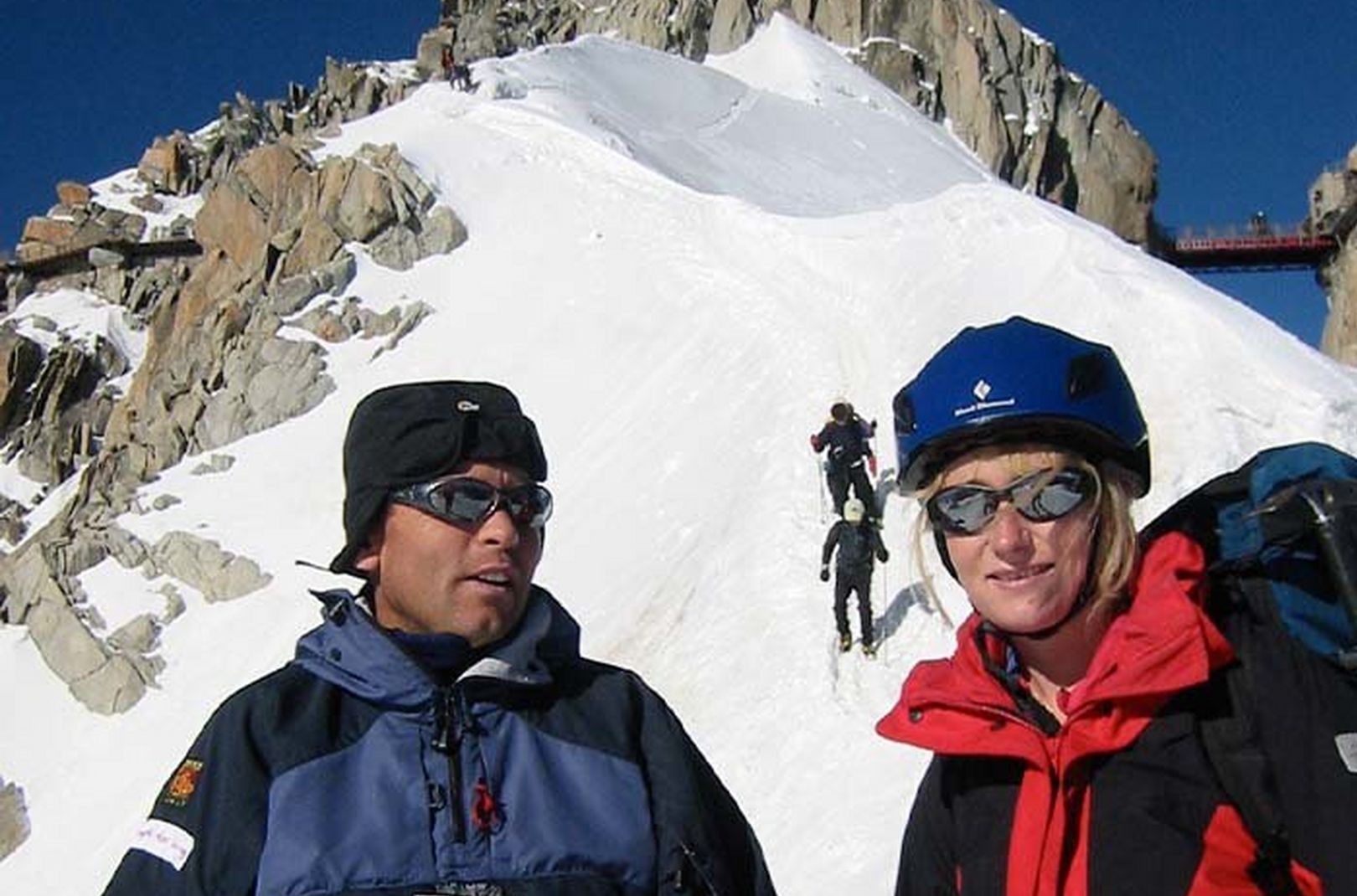
5) To hear you completed several incredible ascents before your transplant, carrying your own dialysis equipment is awe inspiring. How tough were those ascents and where do you find the physical and mental strength to keep exploring?
Mountaineering was my way of trying to maintain some sort of normality and personal identity in my life. Especially when many people around me had written me off as a disabled/poorly person. Each ascent I made was extremely demanding, both physically and mentally and would take three times longer to complete than an average healthy person. And in the process would take me to a place of such exhaustion that on occasion I would collapse through the exertion.
"...to also demonstrate to others living with long term conditions and illnesses that you can pick up the threads of your life."
However, after each ascent, I wanted to try and push the boundaries that bit further on the next climb to find what could be achieved as a mountaineer relying on kidney dialysis to keep me alive. This was not only to prove to myself that I could still visit the mountains, but to also demonstrate to others living with long term conditions and illnesses that you can pick up the threads of your life. Whether it be a round of golf, walking the dog, a trip out with friends, or looking after the grand kids. Life does continue and with a positive mind-set, can be enjoyable. By pushing your own personal boundaries, you never know what you may achieve.
6) For anyone unaware of the prevalence of the condition, how common are kidney-related conditions and what challenges face people who need a transplant?
Kidney issues are very prevalent in society. Many people do not realise they have kidney problems until they crash land in hospital, as it is a hidden disease. One of the problems faced is that people underestimate the impact it has on you – you get comments like, you can have a transplant and you’ll be back to normal. This is not the case; it affects you for the rest of your life. Transplants make life a lot easier, but you still have to be careful. The drugs keep you alive, but there are side effects. Every few months I will have a reaction to mine, which makes me quite violently sick and unwell for days at a time, sometimes resulting in hospital admission.
People also continually ask where are you on the list? There is no list that you work your way to the top of. You have to wait until a match becomes available.
"Too much of the conversation when I was diagnosed was about what I could not eat, drink or do anymore."
Dialysis is time consuming and uncomfortable. It is also not a permanent solution. Haemodialysis damages your veins and gradually Doctors are left with fewer options as to where they can insert needles for treatment. CAPD, the dialysis I was on, will only work for a limited number of years.
7) What does it mean to you to hold that record for undergoing the highest altitude dialysis and how do you feel when you inspire others?
To be honest, I wasn’t just doing this for myself, it was for other patients getting the diagnosis, so they too could see they could carry on doing the things they love. I still get emails now from people thanking me for giving them hope. I wanted people to get some positive messages at what is an incredibly difficult time. Too much of the conversation when I was diagnosed was about what I could not eat, drink or do anymore. We have also done a lot of work with the medical profession and pharmaceuticals to help flip the conversation around to what you can achieve as opposed to what you can’t.
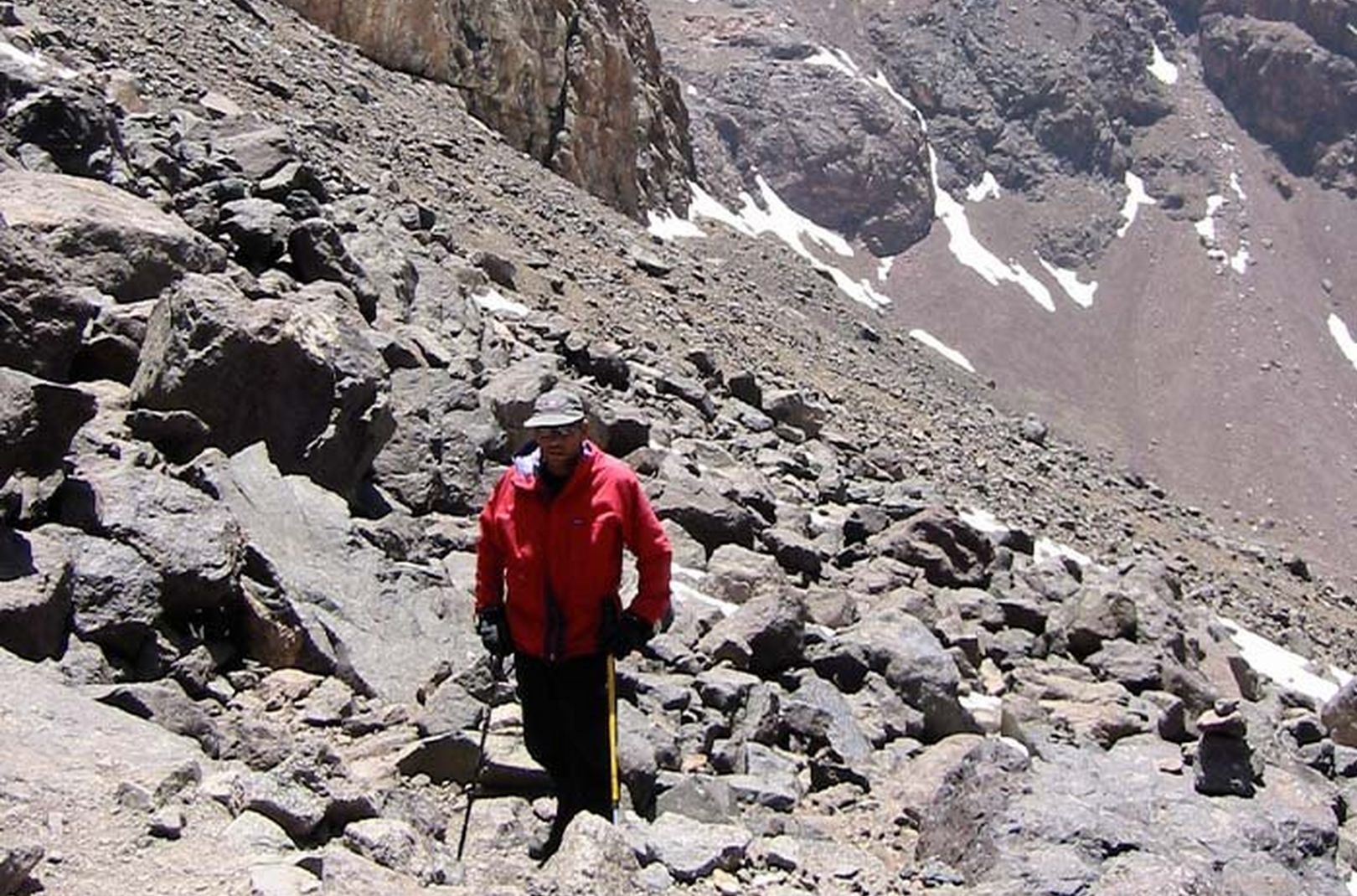
8) You've travelled extensively around the world? Do you have a favourite place, memory or trip?
I had the good fortune many years ago to spend a few months travelling across the length of Indonesia, by myself and climbing some of the country’s highest volcanoes; a number of which are quite remote. I travelled between each island by hitching rides in fishing boats and staying in jungle villages with families. This was a truly memorable trip, which typified the reasons I travel, which are: to meet people, experience different cultures, their food and way of life, the random and sometimes bizarre experience that you encounter when being self-sufficient in unusual surroundings and of course climbing beautiful mountains to watch stunning sunrises from their summits.
9) What is the mission behind 'No Limit's and what advice would you give to people perhaps experiencing similar challenges, or feel the outdoors isn't accessible to them?
After my second transplant I wanted to get back to work, and quickly found that no-one wanted to hire a Mountaineer with a chronic health condition. I was lucky that I knew World Challenge founder (Charlie Rigby and his team) they gave me a chance to get back into work; the company has since been bought by TUI. Off the back of this I set up No Limits Development, as I became aware there was a market for some of the perceived higher risk courses for schools. The mission is to get kids outside having great experiences in the mountains.
We were camping in Switzerland after climbing the Matterhorn. There was a school group on the site. One student had been left behind whilst the others were climbing, as he had a health condition. The poor lad was in pieces all alone on a cold damp campsite. No attempt had been made to accommodate him, or to provide an alternative option. It was then I was determined that no one should be excluded from trips because of a disability.
So, as well as mainstream schools we work with a number of groups where there are individuals who may have additional challenges. Some of which have been told by other companies they will not take them on expeditions as it is too high risk i.e. the child with cerebral Palsy, a heart condition, severe allergies, brittle bones etc. We work with the school, doctors, parents and most importantly the student to make sure we can meet their needs and they are included as part of the team. I now gain a great deal of pleasure from introducing other people into a world of adventure. In some ways life has gone full circle.
10) You're a huge advocate for DofE Expeditions. As the official outdoor retail partner of the award, we're excited to get your views on why every young person should take part in this award?
Upon leaving school, I had failed all my exams but did come away having achieved DofE at Bronze, Silver and Gold. Having the DofE Award opened doors and provided amazing opportunities which shaped the rest of my life. The Award really challenges students to work together, stick at things when life gets tough, and to be independent. It helps prepare them for life, with skills that help prepare you for the workplace. Learn more here about the DofE Awards.
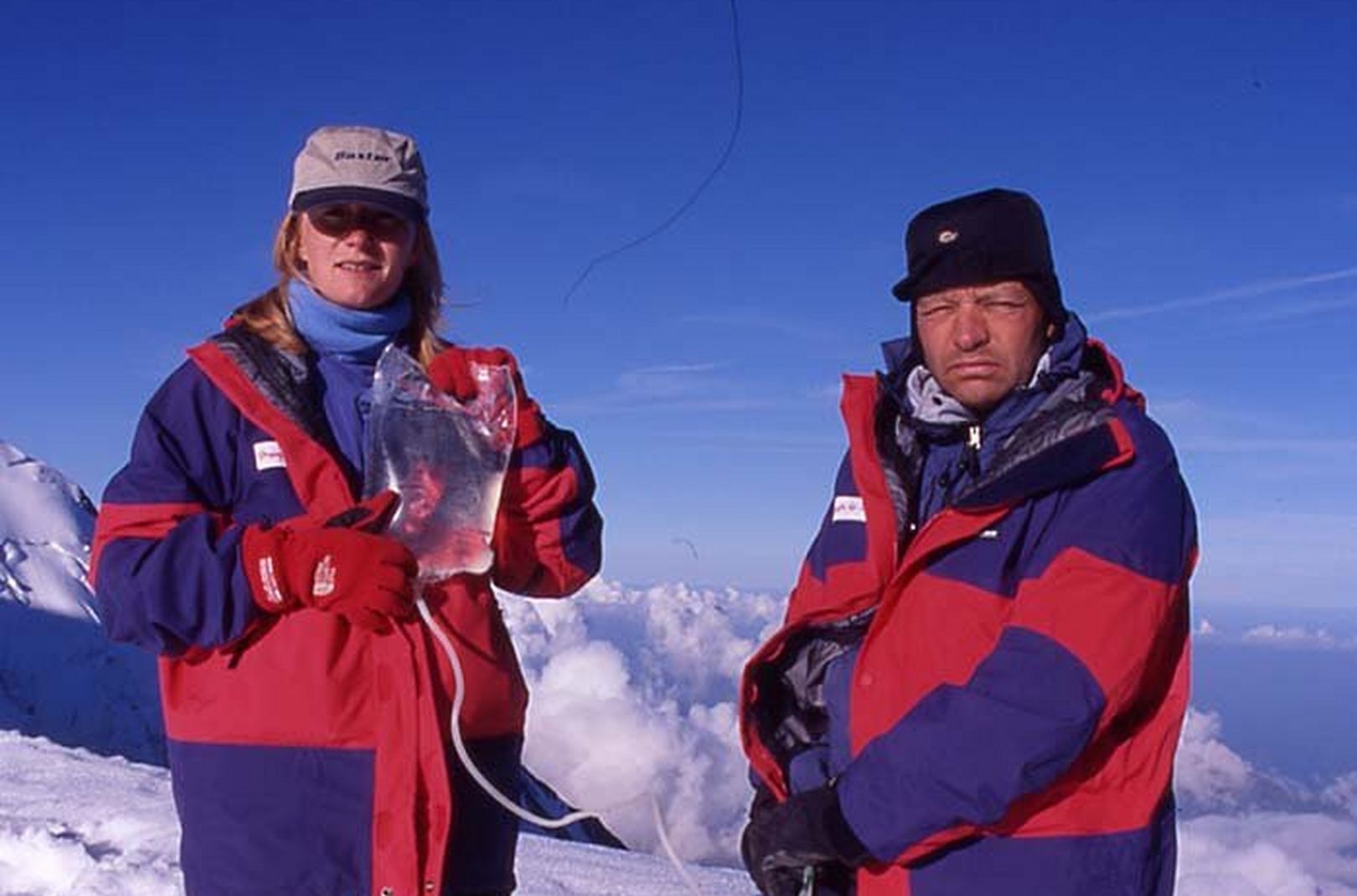
11) Have your experiences changed your perception of life and the importance of the outdoors?
When I was younger climbing was about doing the hardest route or the highest peak I could find. Nowadays, it is about appreciation of what I have. It doesn’t matter if I get to the top; it’s just being able to be outside and enjoy the mountains with good friends. When I now look back on the last 20 years or so as a kidney patient/ transplant recipient. I sometimes wonder what life would have been like without living with a long term illness. In all honesty, whilst I wish this is something which hadn’t happened, I do know it has made me humbler, stronger and more accepting as person.
12) What advice would you give to anyone going through adversity and hardship, either physically or mentally at the moment?
Do not give in and focus on the positive aspects in your life. Set small goals to aim for and talk to family and friends. These are the people who will stick by you and help you through the tough times. It is friendship, teamwork, determination and laughter during times of adversity that helped me through some of my darker moments.
Despite his diagnosis, and perhaps more so because of it, Tony follows his passion for mountaineering and his new found drive to inspire others to get outdoors with great dynamism. He’s a strong advocate for enjoying a Life Outdoors and accessibility for all and continues to climb mountains professionally, personally and psychologically. For information on the great work that Kidney Research UK do for people like Tony, simply visit their website.
Life Outdoors is the DNA of Blacks. Enjoy more powerful stories of inspirational people who advocate time spent in nature by exploring our campaign #everydaylifeoutdoors.
